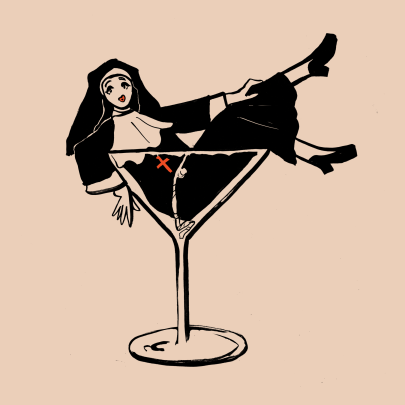Mar 6, 2015 Theatre
Nancy Brunning’s debut play Hikoi takes not so much a giant leap forward, but more a giant leap into the past for Maori theatre.
At the previous Auckland Arts Festival, Hui debuted with the express intention from playwright Mitch Tawhi Thomas of taking fresh approach to Maori theatre. Thomas said, “30 years on from the first Maori appearing onstage, we can now talk about things people were too scared to talk about before”. The programming of Brunning’s work says no, there are still things that need to be said again.
As an actor, Nancy Brunning has been a stalwart of New Zealand theatre and in this play, if you listen close enough, you can hear echoes of some of her great roles. I’m reminded especially of Hone Kouka’s 1996 anti-Bruce Mason play Waiora, in which Brunning played Rongo, a troubled daughter in an urbanised Maori family attempting to operate in a Pakeha society. They are estranged from their hapu, son Boy-Boy is beaten at school for speaking Maori, and Rongo is haunted by tipuna calling her to death.
Hikoi is Waiora’s spiritual successor, flashing forward to the 1970s to see the ongoing effects of assimilation and cultural amnesia, and flashing forward again to the 1980s to see the effects of this culture the next generation. It also tracks the opposite reaction, chronicling activism and the Maori renaissance movement. This is impressively realized in Jaimee Warda’s and Wai Mihinui’s set, a landscape of jagged, sliced wooden sticks which once would have been magnificent native timber. But at the back are some darker pillars, with traditional carved patterns just perceptible.
The two figures that symbolize these strands are Charlie Miller (Jamie McCaskill) and Nellie (Maehe) Miller (Kali Kopae). When they meet at the back of a party for the first time, they are immediately an awkward, mismatched pair. He’s blokey, pushy and not the most perceptive. She’s calm, shy and passionate about her heritage. When she speaks Te Reo, he admits that he doesn’t “speak that Maori stuff”, butchering ‘Maree’ as good as any Pakeha. “You get belted too?” she asks. “Mum said no use for it”. She’s warming her hair by the fire, her hair covering her face. There’s a jolt of electricity when the characters first lay eyes on each other. Mismatched, but perhaps they’ll learn something from each other.
Nellie comes from the valley, and is increasingly drawn back to her whanau who live there. This is anathema to Charlie. He’s cut all his ties and sees survival as doing things the Pakeha way. His new family represents a fresh start. He has a building business with his Pakeha mate Barry (Wesley Dowdell) which he pours his life into. When Nellie is caught up in movements at Bastion Point and the Springbok tours, their relationship is irrevocably strained.
The story of their meeting and marriage is intercut with the present day action in the 1980s when their five children – four girls, one boy – go on a bus-ride hikoi to find their mother, but soon find themselves lost in the valley. None can speak their language, tomboy May (Kura Forrester) wishes she had the superpower to “speak Maori all the time”. The youngest, Bubba (Amanda Noblett), is surprised when she learns she’s not Pakeha. The news says Maori are criminals. And they killed the moa. “I wish I was born a Pakeha”.
The dynamics of the siblings, and the changing of allegiances, is believably and charmingly delivered by the cast. Manuel Solomon as asthmatic Joseph is strong as a boy struggling with the transition between boy and man. Aroha White as Janey has had to be an adult before her time, but her confidence masks deeper insecurities, and twin sister May’s hurt runs deeper still. Worth mentioning too is Ngakopa Volkerling’s as daddy’s girl Pearl who, like us, feels torn in all directions.
Brunning’s play is full of conflict, from the bratty, continuous and often humorous inter-fighting of the younger generation, to the high stakes and heated conflict between husband and wife. What Brunning and the cast do especially well is tilting our sympathies to cover everyone involved. There are no villains here, except perhaps the perniciousness of ignorance itself. What we have instead are flawed heroes, adults and kids, trying to do right within their own world views. The paternalistic Pakeha Barry is the closest we have to stereotype, but he too is shown to be just as much a product of the system.
Brunning’s direction is sensitive to the actors, and character work is especially strong. The structure is well-wrought, particularly the shift between acts where Charlie and Nellie catch up with the present action. Brunning’s automatic impulse is to hold the action at the end of the scene and as lights fade to black-out, though the dynamic temporality of her script could be matched by a more dynamic approach to scene transitions.
The ending frustrates in the suddenness of the conclusion, a reconciliation only just begun. Brunning could afford to hold the beats of her final image for just a little longer. The frustration of the plotted ending however is thematically necessary. There are no easy answers and this is a conversation, and healing process, that takes much longer than two hours onstage allows. When commentators are already looking to a post-treaty settlement landscape, Brunning reminds us we can only look forward by looking backwards.
You feel Brunning reaching out to us when we are told “you must hear this and understand”. For Brunning, who grew up without Te Reo in her household, despite her mother’s fluency, the ignition for the play came from the 2011 Te Reo Mauriora review which predicted the death of Maori language in the next 40 years. Without didactically getting on the pulpit, the play quietly yet powerfully makes the case for Maori language learning in schools so that all New Zealanders can benefit. Hikoi is a cathartic work of remembrance with immediate relevance.





